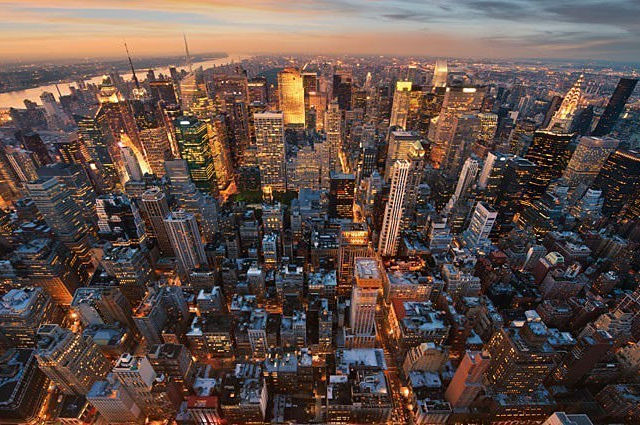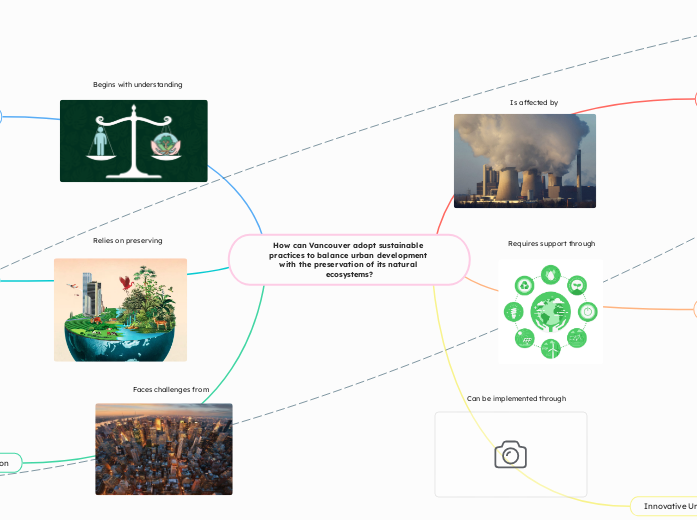How can Vancouver adopt sustainable practices to balance urban development with the preservation of its natural ecosystems?
Climate Change and Emissions
Sources of Emissions
Energy, transportation, agriculture
Impact of Emissions
Rising Temperatures and Extreme Weather Events
Canada is warming at twice the global average rate
Canada's most fatal climate-related event in BC (2021 heat dome)
Most costly weather event (2021 flooding)
the most destructive wildfire season on record (2023)
Long-term effects of CO₂
Temperatures stabilize ~100 years after emissions stop.
Solutions
Renewable energy adoption, carbon pricing, and nuclear energy
Policy and Governance for Sustainability
Circular Economy Policies
Reducing urban waste and regenerating resources
Fostering Youth Engagement
Encouraging youth participation in local climate action
Promoting Community-Centric Economies
Implementing localized circular economy practices
Reuse centers
Community composting
Innovative Urban Solutions
Green Infrastructure
Tree-lined streets
vertical forests
green roofs
Compact Cities
15-Minute Neighborhoods
Residents can access all essential services within a 15-minute walk or bike ride.
Transit-Oriented Development
Smart City Initiatives
Waste Management
Smart sensors for waste management and energy efficiency
Energy Efficiency
Smart streetlights
Smart Mobility Solutions
Apps providing updates on parking availability
Ethics and Perspectives on the Environment
Foundations of Sustainability
European Enlightenment's focus on resource conservation
Indigenous practices of living in harmony with nature
Modern Sustainability Principles
Three E's: Environment, Economics, and Equity
UN Sustainable Development Goals
Conflicts and Awareness
Growth-driven capitalism vs. sustainable living
consumption and resource extraction
cological balance and long-term well-being
Public education and values on sustainability
Biodiversity and Natural Ecosystems
Habitat Loss
False Creek's habitat reduced to 26% of its original 355 hectares
Forest Reduction: Since 1859
Importance of Biodiversity
Ecosystem services: pollination, water filtration, climate regulation
Preservation Efforts
Urban greening and wildlife corridors
Vancouver's Ecological Network
Urbanization
Urbanization's Impact on Ecosystems
Over 90% of historical wetlands in the Lower Fraser area have been lost.
Challenges of Urbanization
Sprawl, car dependency, resource depletion
80% of residents in the Vancouver metropolitan area live in suburban neighborhoods
Cities consuming 75% of resources
Mitigation Strategies
Compact, walkable cities
Circular Economy Practices
Zero Waste 2040 plan
Begins with understanding
Relies on preserving
Faces challenges from
Is affected by
Requires support through
Can be implemented through






